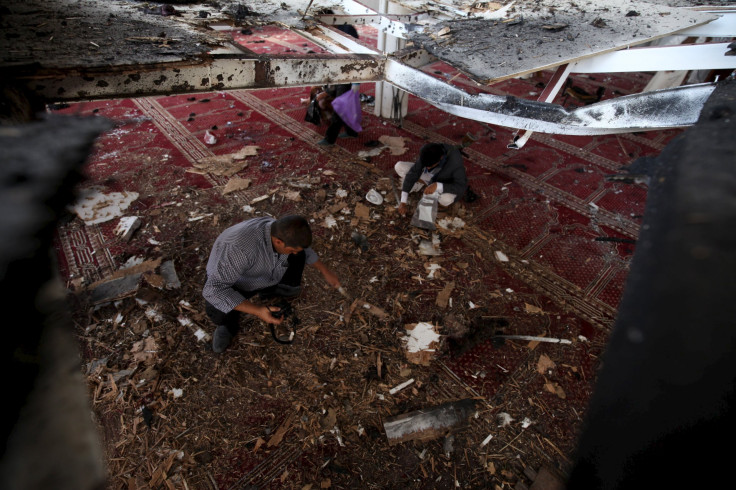Yemen Suicide Attacks: Death Toll Soars, Hundreds Wounded And Killed, Top Houthi Cleric Al-Murtada Bin Zayed Al-Mahturi Killed

A leading Houthi cleric was among at least 137 people killed Friday in suicide bombings in Sanaa, the capital of Yemen. Murtada bin Zayed al-Mahturi was the imam of the Badr mosque, one of two mosques attacked in three blasts that also injured more than 300 people. The slain imam was a prominent scholar who established a center in Sanaa to teach Islamic doctrine that is followed by the Houthi rebels who now control Yemen's capital.
Two blasts went off at the Badr mosque and a third went off at al Hashoosh mosque, both of which were frequented by supporters of Shiite Houthi rebels. The Associated Press reported that after one bomber blew himself up inside the Badr mosque, worshippers ran outside where a second terrorist then detonated his suicide-bomb pack.
Many of those who were not killed were injured by shattering glass in one of the mosques, Mohammed al-Ansi told the AP. He added that limbs were scattered about, and "blood is running like a river."
Responsibility for the attacks remains unconfirmed, but a member of the Houthi political bureau blamed al Qaeda, Al Jazeera reported. The AP said that Twitter accounts affiliated with the Islamic State militant group claimed responsibility for the mosque attacks in Sanaa. However, historically, al Qaeda in the Arabian Peninsula has been responsible for such attacks in Yemen.
Al-Masirah TV, a Yemeni news channel funded and run by Houthi rebels, reported that the suicide bombers concealed their explosive devices by appearing to be disabled.
The attacks follow the Wednesday assassination of another top Houthi official, Abdul Kareem al Khaiwani, near his home in Sanaa. Al Khaiwani had been a member of the Revolutionary Committee of the Houthis, the militia that controls Sanaa. The Houthis have been expanding their control of the city since entering the capital in September. Al Qaeda in the Arabian Peninsula, the Yemeni offshoot of al Qaeda, claimed responsibility for his death.
© Copyright IBTimes 2025. All rights reserved.





















